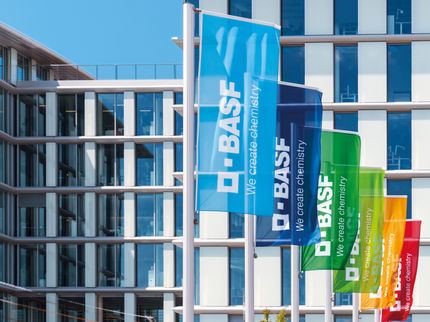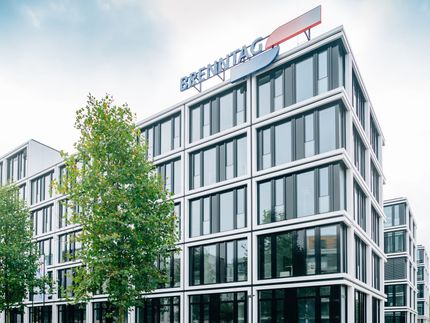Wacker ends Q3 2019 with sales and sales gains
Advertisement
In Q3 2019, Wacker Chemie AG grew sales year over year and, due to special income, also its EBITDA. Reporting-quarter sales at the Munich chemical group came in at €1,267.9 million (Q3 2018: €1,242.7 million). That was a gain of 2 percent. This growth was fueled chiefly by positive volume and product-mix effects and by favorable exchange-rate effects from the rise in value of the US dollar year over year. WACKER more than offset lower prices, in particular for solar-grade polysilicon, but also for standard silicones and a number of other chemical products. Sales were unchanged versus the preceding quarter (€1,268.5 million).
WACKER posted EBITDA of €272.9 million in Q3 2019. That was 13 percent more than a year ago (€241.7 million) and 30 percent higher versus the preceding quarter (€210.7 million). Special income was a decisive factor in this growth. In September, WACKER booked, under cost of goods sold, €112.5 million in insurance compensation for the damages incurred following the incident at the Charleston (USA) plant in 2017. Adjusted for this special income, EBITDA was €160.4 million, comparable to a decline of 34 percent year over year and 24 percent quarter over quarter. The main factors dampening sales in the reporting quarter were substantially lower average prices for solar-grade polysilicon, lower prices for standard silicones and the effects of inventory valuation adjustments. In addition, an unscheduled plant shutdown at a raw-material supplier temporarily restricted polymer production at the Burghausen site. Quarter-over-quarter figures were additionally influenced by the fact that, in Q2 2019, WACKER retained €19.0 million in advance payments received under a contractual and delivery relationship with a solar customer. For the three months from July through September 2019, the Group posted an EBITDA margin, including insurance compensation, of 21.5 percent (Q3 2018: 19.4 percent). Excluding insurance compensation, the EBITDA margin was 12.7 percent, compared with 16.6 percent a quarter ago. In the first nine months of the year, Group EBITDA, including insurance compensation, amounted to €625.6 million. Without insurance compensation, EBITDA was €513.1 million in the first nine months of the year.
Group earnings before interest and taxes (EBIT) rose markedly due to the factors already mentioned. EBIT for July through September 2019 came in at €137.1 million (Q3 2018: €106.5 million). That was an increase of 29 percent and yielded an EBIT margin of 10.8 percent (Q3 2018: 8.6 percent). Compared with Q2 2019 (€70.7 million), EBIT increased by 94 percent. Net income for the reporting quarter amounted to €86.3 million (Q3 2018: €68.9 million) and earnings per share came in at €1.67 (Q3 2018: €1.31).
As already announced, WACKER lowered its guidance for full-year 2019. WACKER expects Group sales for 2019 to be on par with last year (€4,978.8 million). Excluding insurance compensation, EBITDA is likely to be some 30 percent below last year’s level (€930.0 million) and net income should be slightly positive.
“Despite increasingly difficult conditions, WACKER lifted its third-quarter sales versus last year and matched its prior-quarter figure,” said Rudolf Staudigl, WACKER’s CEO, in Munich on Thursday. “Given the ever-weaker global economic trend, that is a very solid achievement. On the other hand, we are not satisfied with our earnings performance. Although we posted strong EBITDA growth in Q3, this was due to special income. In operating terms, EBITDA fell quite significantly versus both last year and a quarter ago. We have started work on a comprehensive program to weatherproof our earnings and competitiveness. Our aim is to prepare WACKER for future challenges, by making it more efficient and capable, and to achieve substantial cost savings. In the coming weeks, we will examine the whole organization. We want to find out where to become leaner, where to combine functions, reduce tasks and organize processes even better. We must, and will, effectively counter the increasingly difficult conditions facing our business.”
Regions
In Q3 2019, WACKER’s sales rose year over year in almost every region due to volume growth and favorable exchange-rate effects. The strongest increase was in Asia, where sales rose to €461.8 million. That was 13 percent more than a year earlier (€407.8 million). In the Americas, sales climbed by 2 percent to €236.2 million (Q3 2018: €232.0 million). In Europe, on the other hand, sales fell 7 percent versus last year (€542.4 million).
Capital Expenditures and Net Cash Flow
In Q3 2019, the Group’s capital expenditures came in at €87.8 million (Q3 2018: €121.6 million). That was 28 percent less than a year ago. The investment focus was on expanding capacity for silicone and polymer products.
Net cash flow was €175.7 million in Q3 2019 (Q3 2018: €4.1 million). Substantially higher cash inflows from operating activities were the main factor in this year-over-year increase.
Employees
WACKER’s global workforce edged down in the reporting quarter. The Group had 14,775 employees as of September 30, 2019 (June 30, 2019: 14,826). At the end of the reporting quarter, 10,434 employees (June 30, 2019: 10,453) worked at WACKER sites in Germany and 4,341 (June 30, 2019: 4,373) at international locations.
Business Divisions
In Q3 2019, WACKER SILICONES posted total sales of €633.3 mil-lion, matching the prior-year level of €634.9 million. Sales benefited from exchange-rate differences and volumes that, on balance, were somewhat higher year over year. On the other hand, price effects dampened sales. Relative to a quarter ago (€650.0 million), sales fell 3 percent due to lower prices. WACKER SILICONES generated EBITDA of €127.1 million in the reporting quarter, 27 percent lower than a year ago (€173.4 million). EBITDA was impacted not only by the year-over-year decrease in prices for standard silicones, but also by measures taken to optimize working capital. On the other hand, the division exceeded its figure of a quarter ago (€119.8 million) by 6 percent. The EBITDA margin for Q3 2019 was 20.1 percent, after 27.3 percent in Q3 2018 and 18.4 percent a quarter ago.
Sales at WACKER POLYMERS totaled €334.8 million in the reporting quarter, 1 percent lower than a year earlier (€338.8 million). Positive exchange-rate effects did not fully compensate for the slight decline in average volumes and prices for polymer products. Compared with the preceding quarter (€353.3 million), sales decreased 5 percent, chiefly due to lower volumes. In Q3 2019, WACKER POLYMERS posted EBITDA of €48.7 million, compared with €46.9 million a year earlier. That was a gain of 4 percent. The division’s good cost structure was the main factor supporting EBITDA. Compared with a quarter ago (€52.7 million), however, EBITDA was down 8 percent. One reason for the decline was an unscheduled plant shutdown at a raw-material supplier. As a result, production at the Burghausen site was temporarily restricted, which in turn reduced capacity utilization and lowered EBITDA. The EBITDA margin was 14.5 percent in the reporting quarter, after 13.8 percent a year earlier and 14.9 percent a quarter ago.
WACKER BIOSOLUTIONS reported total sales of €60.7 million in Q3 2019, up 6 percent versus a year ago (€57.3 million). Quarterly performance was especially good in biopharmaceuticals, where substantially higher volumes were the main factor lifting sales. Changes in exchange rates also had a positive effect on sales. Compared with a quarter ago (€60.8 million), the division’s sales were virtually unchanged. Reporting-quarter EBITDA at WACKER BIOSOLUTIONS was €7.3 million, 22 percent above the year-earlier figure (€6.0 million) and on par with the preceding quarter (€7.3 million). EBITDA was supported not only by volume growth and an improved cost structure, but also by rising plant utilization rates for biologics year over year. The EBITDA margin climbed to 12.0 percent, after 10.5 percent a year earlier. In Q2 2019, the EBITDA margin was 12.0 percent as well.
WACKER POLYSILICON generated total sales of €206.4 million in the reporting quarter. That was 19 percent more than a year ago (€173.5 million) and 22 percent higher versus the preceding quarter (€169.9 million). Strong volume growth was the main driver of this increase. As a result, the division more than compensated for the decline in average solar-grade polysilicon prices, which were down both year over year and quarter over quarter. Reporting-quarter EBITDA at WACKER POLYSILICON came in at €85.1 million. That was €80.8 million more than a year ago (€4.3 million) and €79.4 million more than a quarter ago (€5.7 million). This strong increase was due to special income. In the reporting quarter, the division booked €112.5 million in insurance compensation for the damages incurred following the incident at the Charleston (USA) plant in 2017. In operating terms, EBITDA fell substantially, to €-27.4 million. EBITDA was burdened not only by lower average polysilicon prices, but also by inventory valuation adjustments. From July through September 2019, the division’s EBITDA margin was 41.2 percent, after 2.5 percent in Q3 2018 and 3.4 percent in Q2 2019. Excluding insurance compensation, the reporting-quarter EBITDA margin was -13.3 percent.
Outlook
As already announced, WACKER now expects several key financial performance indicators for 2019 to be lower than previously projected. Expectations have declined primarily because prices for polysilicon remain extremely low. Many market experts had anticipated that prices for solar-grade polysilicon would recover in the second half of the year – an assumption that was reflected in WACKER’s previous guidance. But average prices for this material have not improved. Instead, they fell further in the third quarter. Furthermore, the increasing weakness of the global economy is also dampening business in all of WACKER’s divisions.
In detail, WACKER’s current expectations are listed below and, as previously, its full-year guidance does not include insurance compensation for the damages incurred following the incident at the Charleston site.
Group sales for full-year 2019 are expected to be on par with last year (previous guidance: mid-single-digit percentage increase). EBITDA is likely to be some 30 percent below last year’s level (previous guidance: 10 to 20 percent lower than a year ago). Net income is expected to be slightly positive (previous guidance: substantially below last year). Net cash flow should be clearly positive, but lower than last year (previous guidance: clearly positive and substantially higher than last year).
WACKER’s forecast has not changed for the EBITDA margin, which is likely to be substantially lower than a year ago. The projection for capital expenditures is also unchanged (around €400 million). Net financial debt is expected to be higher than last year, with the increase caused not only by initial application of IFRS 16, but also by lower net cash flow. Depreciation should come in at around €550 million and ROCE is likely to be substantially below the prior-year level.



























































